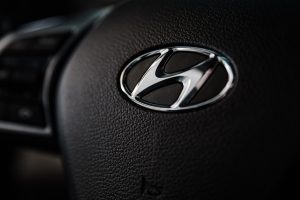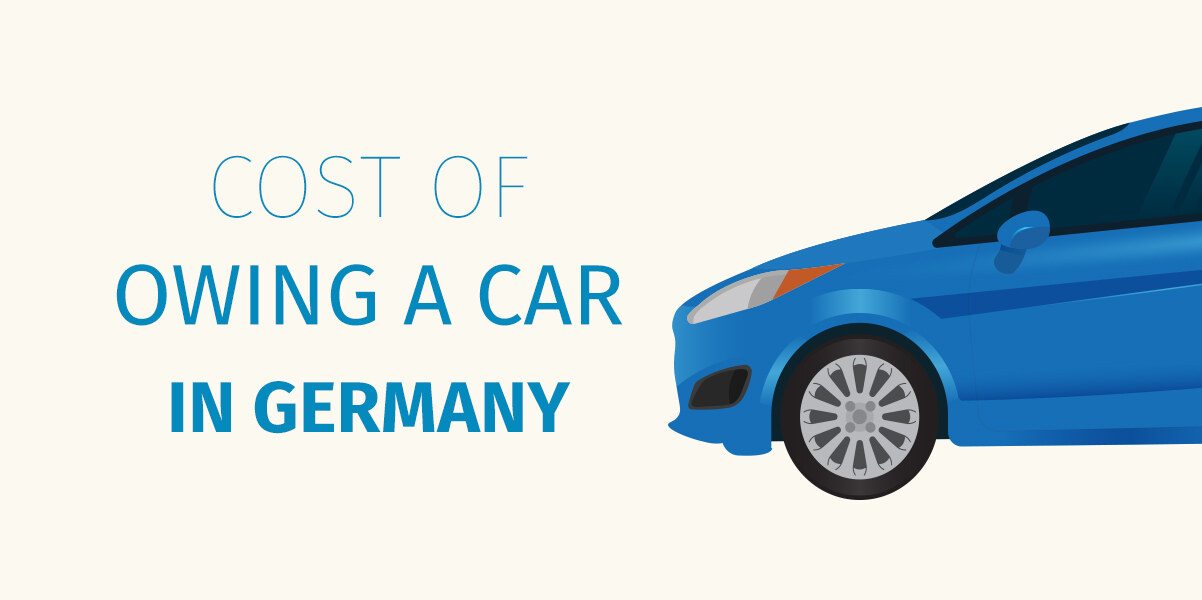Owning a car in Germany – Cost Estimation
Let’s assume you already have a driving license (driving license in Germany costs on an average 1500–2000€) and have ready purchased a car. Buying a car in Germany depends on your budget. As per my experience, the cost of owning a car in Germany is as follows:
- Car registration (Kfz-Zulassung): The first thing you will have to pay for is the registration at the KFZ – Zulassungsstelle. This may cost around 27–30€. It will cost you more if you select a desired license plate number.
- Number plates (Kfz-Kennzeichen): The next cost will be related to buying number plates. This should cost around 10–15€.
Hint: If you are planning to buy a used car that is already registered, you can think of keeping the existing license plate number (Discuss it with the current owner, to be polite!). This will save you the additional cost of buying a new license plate.
- Future Modifications to vehicle paper(s): You will incur a small fee anytime in the future when you need to change any details in the vehicle papers (Zulassungsbescheinigung). For example, when you move to a new address, you need to pay a small fee for changing the address in Zulassungsbescheinigung Teil 1.
- Winter tires (Winterreifen): The German law stipulates that winter tires, or even tires that comply with Directive 92/23 / EEC, must be used when “black ice, snow, slush, ice or frosted ice” prevails (§ 2 (3a) StVO). As a result, you will need to buy two sets of tires – Summer and Winter (It is not recommended to use winter tires in summer as they wear down quickly in warm temperature and also reduce the performance of the car). You can either buy:
- Just the rubber tires (Reifen): In this case, you will pay less up front, but you will have to pay more every time you have to get them changed at a garage (You can do it yourself if you are an expert).
- Tires with rim (Reifen mit Felgen): In this case, you will pay more upfront, but you will have to pay less every time you have to get them changed at a garage. Also, you can change the tires on your own with a need of much expertise.
SEE ALSO: How to convert an existing driving license to a German driving license?
Apart from these, you will incur some regular costs:
- Motor vehicle taxes ( Kfz-Steuer)
For newer cars, the tax is calculated on basis of vehicle engine type, capacity, and CO2 value. For older cars, it is calculated on basis of emission class. The tax has to be paid on yearly basis.
You can calculate the tax amount here: Kfz-Steuer-Rechner – Bundesfinanzministerium – Service
- Insurance (Kfz-Versicherung)
The insurance amount depends on the type and power of the car. It also depends on which accident-free class (Schadenfreiheitsklassen – SF Klasse) you are in. The insurance amount goes lower every year you have an car insurance and remain accident-free (as a result of own fault). The insurance amount goes up every time you use the insurance. It is higher for persons with a new license and/or if they are below a certain age (usually 18–24 years). You can check the SF-classes here (in German): Schadenfreiheitsklassen im Überblick (SF-Klassen)
- The insurance can be divided into 3 main types:
-
- Kfz-Haftpflichtversicherung (Mandatory) = Liability or third-party coverage
This type of car insurance is a minimum legal requirement to be able to register your car. It covers all the damages
-
-
- you might do while driving to other people or
- other cars or things in case of an accident
- medical bills if someone is injured
- It doesn’t cover any damages done to your own car
- Teilkasko (Optional: add-on to Haftpflichtversicherung ) = Partial coverage
-
This type of insurance may cover:
-
-
- theft-attempts or theft themselves,
- accident with an animal,
- fire,
- glass damages,
- thunderstorms, etc
- Vollkasko (optional: add-on to TeilKasko) = Comprehensive coverage
-
This type of insurance covers any damage to your own car (in addition to (a) and (b)) as a result of an accident, even if it is your fault.
Teilkasko is only a little more expensive than Haftpflichtversicherung. But getting Vollkasko drives up the insurance amount quite a lot. I would recommend getting at least Teilkasko. One way of having a lower insurance amount for Teilkasko and Vollkasko is to provide a higher excess to be paid by yourself (Selbstbeteiligung) in case if you need to use the insurance.





General inspection (Hauptuntersuchung – HU) and exhaust emission test ( Abgasuntersuchung – AU)
It has to be performed every 24 months for all cars. It is relaxed to 36 months for some types of vehicles (for example, Pkw category) if it is the very first inspection (Erste Untersuchung). This will cost around 90-100€(This doesn’t include any repairs if required!)

Changing tires every summer and winter (if you don’t do it on your own)
If you don’t change tires/wheels on your own, every year you will end up paying twice (summer and winter) for changing tires.
-
- For tires without rims, this can cost between 20–35€ per Tyre.
- For tires with rims, this can cost between 7–15€ per wheel.
Source: Preisradar Reifen wechseln

Inspection, Maintenance, and Repairs
To keep your car running smoothly you will need to perform regular inspection and maintenance (Inspektion und wartung) as per manufacturer’s specifications (For example changing OIL, air filter, pollen filter, etc) every 1–2 years. This can cost you around 200–400 Euros every time; and once in a while around 400–800€ when some major maintenance/replacement of parts has to take place.
Once in a while, doesn’t matter how much care you take of your car, something is going to go wrong. You will also end you paying for the repairs. In Germany, minor repairs can also cost a lot (esp. due to expensive labor costs). For example, I had a stone hit on my cars condenser (insurance only covers stone hit to exterior car body), which caused it to become leaky (and no cool air from the A/C as a result). I had to pay 170€ for the replacement parts (new condenser + A/C gas) and more than 400€ in labor charges!

Parking
This is something that should not be taken lightly, esp. if you live towards the center of a big city. Parking space or a garage can cost up to 100€ or more a month.

Car wash
This is one of the smaller cost that accumulates over time if you wash your car regularly. In Germany, you are not allowed to wash cars in the street or in your own garage if it doesn’t have a special drainage system. If you take the car to an auto wash (Autowaschanlage), it can cost between 8–20€ every time.
Hint: Some shops provided you a place, water, and soap to hand wash your car. If you are not afraid to get your hands dirty, you can save a lot of money (It cost 2–5€ to wash this way every time).

My estimate for regular costs that are incurred on my Hyundai i30 are:
- 500–700€ per year for Insurance (Vollkasko) + Vehicle taxes
- 100€ every 2 years for HU/AU
- 25€/month for Garage (I live in a small City)
- 250€ on an average for a small inspection every 2 years (I have not had a large inspection yet!).
- I purchased Tires with rims and change them myself every change of season.
- My suggestion is to keep 500€ a year aside for any repair or if larger maintenance is required.
Download our Android app from the Google Play store to get all the information about, living, studying and working in Germany all in one place.
More from Study in Germany
FAQs about Studying in Germany | Airports | Preparation and Arrival | Masters | Bachelors | PhD | Student in Germany | Life in Germany | Part-time Jobs | Working in Germany | Driving in Germany | Housing in Germany | Integration | Comparisons between Countries | Traveling in Europe
0 comments
Leave a Comment


Your comment is awaiting moderation.
Что необходимо знать при покупке номера для получения смс
Виртуальные номера для получения СМС стали очень популярной и востребованной услугой в связи с растущей и развивающейся технологической базой для общества. В этой статье мы рассмотрим преимущества, особенности и нюансы покупки виртуальных номеров, а также рассмотрим, как это можно сделать с помощью криптовалюты.
Какие преимущества и возможности дает виртуальный номер Турции
Виртуальные номера телефона позволяют пользователям принимать и отправлять сообщения, не имея физической SIM-карты. Это особенно удобно для тех, кто хочет зарегистрироваться на различных онлайн-сервисах, подать заявки или просто остаться анонимным. Виртуальный номер телефона Турции не только раскрывает новые горизонты для пользователей в этом регионе, но и предоставляет ряд преимуществ.
Купить временный номер телефона
Купить временный номер телефона может оказаться не много сложным, но следуя ряду рекомендаций, все можно сделать максимально просто и не сложно.
Многие сервисы предлагают разные методы оплаты при покупке виртуального номера, включая использование криптовалют.
Виртуальный номер за криптовалюту: уникальные возможности для пользователей
Все большую популярность при работе с временными виртуальными номерами является возможность купить виртуальный номер за криптовалюту. Это решение обладает несколькими важными преимуществами:
– Первое и самое главное это то, что при покупке виртуального номера за криптовалюту поддерживается полная анонимномть.
– Быстрота и удобство расчетов: использование криптовалюты позволяет проводить транзакции мгновенно, без необходимости ждать подтверждения банка или других финансовых учреждений. [url=https://itandlife.ru/life/raznoe/registracija-akkaunta-v-telege-na-virtualnyj-nomer-kak-i-dlja-chego]купить виртуальный номер Телеграм[/url]
В завершении хотелось бы отметить моменты почему необходимо купить виртуальный номер в Турции
Покупка виртуального номера для SMS, особенно в таких странах, как Турция, открывает новые горизонты как для личного, так и для бизнеса. Осуществление покупки временного номера для регистрации дает вам шанс оставаться анонимным в любой ситуации. Купить виртуальный номер за криптовалюту дает неоспоримые возможности для расширения своего влияния. Рассматривая все эти аспекты, можно с уверенностью утверждать, что виртуальные номера — это не просто тренд, а необходимость для многих пользователей.